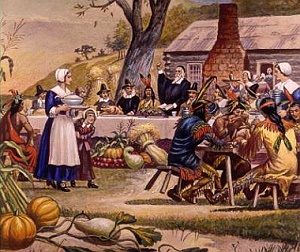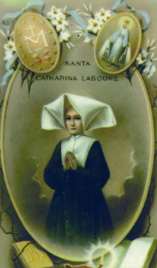The Man Who Understood American Culture
FREE Catholic Classes
If the reader is confused by the present cultural tumult, and as a person of faith wonders what lies in the future and what got us here, Marion Montgomery can be the Virgil to our pilgrim. The day will come when his legacy is appreciated in its fullness, and the University of Georgia where he taught for 33 years will bestow on him the honor he deserves.Montgomery followed his friend O'Connor in calling himself a "Hillbilly Thomist," but his learning was broad and deep - it cut to the core of Western civilization, its metaphysical ailments, and spiritual confusions.
Highlights
Catholic Online (https://www.catholic.org)
4/3/2014 (1 decade ago)
Published in U.S.
Keywords: culture, absolute, art, music, forgiveness, fugitive agrarian movement, Hillbilly Thomist, teaching, education, Marion Montgomery, Flannery O'Connor, manners, compassion, faith, catholic, Deal W. Hudson
WASHINGTON,DC (Catholic Online) - You may not have heard of him, but a Christian man of letters, one of our greatest, passed away a few years ago. A native of Georgia and educated at its University, Marion Montgomery was a prolific writer. His works include three novels, a volume as yet uncollected of short stories, poetry, literary and cultural criticism, and a number of books that applied the Thomistic tradition to contemporary culture and the great works of American literature.
His greatest achievement, I believe, was his trilogy, The Prophetic Poet and the Spirit of the Age, with one volume devoted to Flannery O'Connor, one to Edgar Allan Poe, and another to Nathaniel Hawthorne. When it was published, I called it "Marion Montgomery's Summa Through the American Mind."
There is still nothing I know of that captures with such accuracy and probity the American "popular spirit," as it has evolved from the New England Puritans and Transcendentalists to the present legion of modernists. Its 1,400 pages contain nothing less than a "prophetic" critique of American culture as it has developed over the past two hundred years.
If the reader is confused by the present cultural tumult, and as a person of faith wonders what lies in the future and what got us here, Marion Montgomery can be the Virgil to our pilgrim. The day will come when his legacy is appreciated in its fullness, and the University of Georgia where he taught for 33 years will bestow on him the honor he deserves.
I am privileged to have known Marion, his wife Dot, and some of their children. Some months ago I spent the day with Dot and her daughter Heli in their home outside Athens going through cabinet after cabinet of papers and rooms filled with books. My real contribution was to have brought a nationally respected expert to view the collection Marion Montgomery had left with his family.
As I looked through the filing cabinets, I saw correspondence with members of the "Fugitive-Agrarian Movement," such as Donald Davidson, Robert Penn Warren, Cleanth Brooks, Allen Tate, Caroline Gordon, John Crowe Ransom, and Andrew Lytle who were major figures in the literary world of the 40s and 50s. In retrospect, Marion Montgomery will be seen as the best of the movement's second generation, especially when his fiction and poetry receive the attention they deserve.
But it was the moment we came upon a folder with the name Flannery O'Connor written in Marion's hand on the tab that my heart began to race. Inside were a number of letters, mostly handwritten, from Flannery to Marion and Dot.
What made these particular letters so poignant is that most of them were from the last year of Flannery's life, indeed, some were written only months before her death in 1964. Those familiar with the O'Connor letters collected by Sally Fitzgerald in The Habit of Being would be glad to know that the same self-deprecating humor and discerning eye were still very evident in her writing.
Also in that file was an introduction of Marion Montgomery written by Flannery herself when she hosted him for a lecture in Milledgeville, Georgia, where she lived on the family farm, Andalusia, with her mother Regina.
I have asked for permission to quote from Flannery's introduction of Marion, but anyone who reads it will be struck by her deep respect for Montgomery as a writer of fiction and as a critic. Indeed, she spoke of him as a peer, and Flannery O'Connor was not a person who embellished her opinions.
Montgomery followed his friend O'Connor in calling himself a "Hillbilly Thomist," but his learning was broad and deep - it cut to the core of Western civilization, its metaphysical ailments, and spiritual confusions. If you are not ready to tackle the trilogy, one of the best places to start reading Montgomery is his "Possum and Other Receipts for the Recovery of "Southern' Being."
Whereas many scholars take the principles of Aristotle, St. Thomas, and modern Thomists such as Maritain, Gilson, and Pieper, and apply them like a cookie cutter to the culture, Montgomery had developed the habitus of Thomistic thought, its wisdom, and never spoiled the course of his narrative with a clutter of quotations from the Summa and modern Thomists. Montgomery was a modern Thomist, the only Thomist who has critically surveyed the devolution of American culture into postmodernism.
Here is a taste of Montgomery taken from his Preface to The Prophetic Poet and the Spirit of the Age:
We shall consider whether, in consequence of the triumph of opinion over reasoned judgment, a consequence of ideological illusions practiced upon the community of man this past four or five hundred years in the interest of gathering power over nature and man - the popular spirit of our age has reached a condition whereby each man must be his own ideologue; whether indeed he insists upon being so as a "natural right"; and whether there is rescue from the isolation of that position.
What Montgomery had done for American studies can be compared with Paul Johnson's Modern Times, Friedrich Heer's Intellectual History of the West, and Cornelio Fabro's God in Exile. In each of these magisterial works, a Christian realist uncovers the intellectual and spiritual mistakes that led to the deadly combination of secularity and despotism.
Like O'Connor, Montgomery spoke with a distinctly Catholic voice from the heartland of the Protestant South (he attended an Anglo-Catholic church). Widespread recognition of O'Connor's writing came slowly because she "stayed home," as Marion put it. When Montgomery said of O'Connor, "Being a Southerner does not in fact set her in a separate world," he speaks also of himself.
Being a fellow Southerner, Montgomery also weighed in on the issue of manners, as O'Connor did so eloquently in the collection entitled Mystery and Manners. Montgomery, perhaps, explains the importance of manners more clearly than his friend from Milledgeville:
Let us say that manners are what we discover in community as an aid to the individual member in those moments when his good will falters and best thought weakens. It is the poetry of being beyond the literal words or gestures that embody manners. Manners let the soul catch its breath in the difficult journey of the world where at every moment one may lead himself astray..
"Manners let the soul catch its breath in the difficult journey of the world." Those are the words of a thinker whose influence should be felt at the present moment in our nation's history, when manners have been virtually abandoned both in action and in aspiration. The mystery of manners, after all, is that manners link us to the mystery through which we have life and redemption. There is no more trustworthy guide back to that mystery than Marion Montgomery.
© Deal W. Hudson, Ph.D
-----
Deal W. Hudson is president of the Morley Institute of Church and Culture, Senior Editor and Movie Critic at Catholic Online, and former publisher and editor of Crisis Magazine.This column and subsequent contributions are an excerpt from a forthcoming book. Dr. Hudson's new radio show, Church and Culture, is heard on the Ave Maria Radio Network.
---
'Help Give every Student and Teacher FREE resources for a world-class Moral Catholic Education'
Copyright 2021 - Distributed by Catholic Online
Join the Movement
When you sign up below, you don't just join an email list - you're joining an entire movement for Free world class Catholic education.
-

-
Mysteries of the Rosary
-
St. Faustina Kowalska
-
Litany of the Blessed Virgin Mary
-
Saint of the Day for Wednesday, Oct 4th, 2023
-
Popular Saints
-
St. Francis of Assisi
-
Bible
-
Female / Women Saints
-
7 Morning Prayers you need to get your day started with God
-
Litany of the Blessed Virgin Mary
Daily Catholic
 Daily Readings for Thursday, November 28, 2024
Daily Readings for Thursday, November 28, 2024 St. Catherine Laboure: Saint of the Day for Thursday, November 28, 2024
St. Catherine Laboure: Saint of the Day for Thursday, November 28, 2024 The Salve Regina (Hail Holy Queen): Prayer of the Day for Thursday, November 28, 2024
The Salve Regina (Hail Holy Queen): Prayer of the Day for Thursday, November 28, 2024- Daily Readings for Wednesday, November 27, 2024
- St. James Intercisus: Saint of the Day for Wednesday, November 27, 2024
- Prayer to Saint Anthony of Padua: Prayer of the Day for Wednesday, November 27, 2024
![]()
Copyright 2024 Catholic Online. All materials contained on this site, whether written, audible or visual are the exclusive property of Catholic Online and are protected under U.S. and International copyright laws, © Copyright 2024 Catholic Online. Any unauthorized use, without prior written consent of Catholic Online is strictly forbidden and prohibited.
Catholic Online is a Project of Your Catholic Voice Foundation, a Not-for-Profit Corporation. Your Catholic Voice Foundation has been granted a recognition of tax exemption under Section 501(c)(3) of the Internal Revenue Code. Federal Tax Identification Number: 81-0596847. Your gift is tax-deductible as allowed by law.







 Daily Readings for Thursday, November 28, 2024
Daily Readings for Thursday, November 28, 2024 St. Catherine Laboure: Saint of the Day for Thursday, November 28, 2024
St. Catherine Laboure: Saint of the Day for Thursday, November 28, 2024 The Salve Regina (Hail Holy Queen): Prayer of the Day for Thursday, November 28, 2024
The Salve Regina (Hail Holy Queen): Prayer of the Day for Thursday, November 28, 2024


